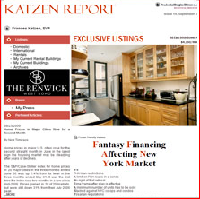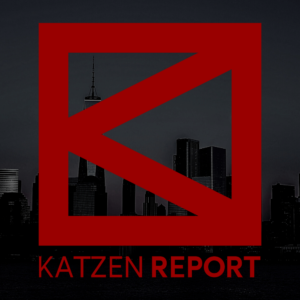It’s
FHA loan restrictions
A limit on FHA loans in a condo
No right of first refusal
Time frame after plan is effective
A minimum number of units has to be sold
Stacked against NYC co-ops and condos
Yosarian regulations
Today, 65 percent of the transactions in Manhattan are under $1 million as buyers who were priced out of the market or renting find they can afford to buy. These buyers are finding enormous inventory and tremendous flexibility on the part of sellers.
The buyers are looking at prime neighborhoods, which provide good schools and a solid long-term investment. They are purchasing larger units of about 1,000 sf for the same price range as the previously 600 sf. Median prices have adjusted from a blended average of approximately $1,600/sf to ask prices at $850 – $1,000/ sf.
Many transactions have been fueled by low-rate mortgages from lending institutions. In addition, the Federal Housing Administration (FHA) has stepped in with additional funds. It raised the lending ceiling to $729,750 and has lower financial requirements than the private lenders. While the government backing has spurred single-family home sales in the rest of the country, too many stringent restrictions for co-ops and condos are hindering deals in New York. Co-ops, in fact, do not qualify for FHA loans.
Yet, this is just one of the many issues that we face today in what I call Fantasy Financing.
Developers are working to obtain FHA-approval for their condos, a lengthy and expensive proposition, which in theory facilitates obtaining a FHA-backed loan. But even that does not guarantee that a qualified buyer will be successful. Just recently, a client lost out on buying a one-bedroom condo in a downtown prewar conversion when she sat down at the closing and learned her financing was rejected. End of deal. The reason: a loophole preventing FHA-insured loans until one year after the condominium plan has been declared effective.
This presents a Catch-22 situation. Many buyers need a mortgage to purchase a condo, yet institutional lenders won’t provide a mortgage until a significant number of units are sold. The FHA-backed loans are not an option as they have the same, or even more stringent, requirements. Adding to this is a regulation starting on October 1 where the FHA will limit the number of its loans to 30 percent of the buyers in an approved project.
The difficulty in obtaining FHA loans is placing a barrier to sales in New York City because FHA loans ease the financial outlay of buyers with lower interest rates, as the government insures the developer will get paid regardless of default, less stringent financial requirements and smaller down payments. Many lending institutions require 20-25 percent or more upfront while FHA-loans can require less than 5 percent.
If a project is not FHA approved, buyers can seek what is called a spot loan, but that has numerous caveats:
- The condo association cannot have the right of first refusal, a practice common only in New York City. Some developers are amending the offering plan to remove this provision.
- The project cannot be subject to additional phasing or annexation.
- There must be no special assessments or legal actions pending against the association.
- At least 90 percent of the units must be sold.
- At least 51 percent of the units must be owner-occupied.
- No single entity can own more than 10 percent of the units.
- For projects over 30 units, only 10 percent can have FHA loans; for those 30 units or less, no more than 20 percent can have the loans.
As you can see, while the programs exist, there are stringent requirements that preclude many New Yorkers from using government-financed loans and helping to revive the New York housing market. Fantasy Financing is available, but the buyer must understand the procedures and requirements before seeking to use this financial option.

